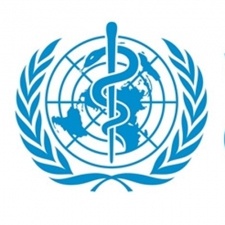The global games industry has rejected the World Health Organisation’s (WHO) claims that gaming addiction is a disease.
A new paper titled ‘A Weak Scientific Basis for Gaming Disorder: Let us err on the side of caution’, which is being promoted by 22 international trade bodies, says that more evidence is needed before WHO can add gaming addiction to its list of diseases.
WHO drafted definitions for video game addiction as part of its beta of International Compendium of Diseases revision in January this year. The new report claims that more transparency and pre-registered studies are needed for. They say that a rational focusing on gaming in particular versus a more general behavioural addictions concept needs to be studied and that there needs to be an unbiased exploration of clinical approaches that treat potentially underlying issues such as depressive mood or social anxiety first.
The new paper acknowledges that there are benefits to formalising gaming disorder, but that these benefits do not yet outweigh the wider societal and public health risks. They advise their colleagues at the WHO to err on the side of caution and postpone the formalization due to the impact a diagnostic classification could have on society.
Gaming disorder is defined in WHO’s original report as ‘a pattern of persistent or recurrent gaming behaviour where the player may give video games priority over other aspects of life or continue playing for long periods despite the occurrence of negative consequences. The new paper that suggests it is too early to classify it as an addiction is not only supported by trade bodies around the world, but it is also backed up by a number of prominent scientific researchers and mental health experts from a wide range of universities.
22 world-wide trade bodies, including Ukie, the International Software Federation of Europe (ISFE), Entertainment Software Association, Brazilian Union of Games, Interactive Entertainment South Africa, and Korea Association of Game Industry have also backed the new paper.
"It is clear that there remains significant opposition from the scientific community to the WHO's proposed position on a 'gaming disorder'. UK games trade body Ukie CEO Dr Jo Twist OBE said.
“We join them and others from the global games sector in calling for the WHO to consider the evidence and concerns presented in this new paper and to stop the unnecessary inclusion of this classification"
ISFE CEO Simon Little added: "Worldwide opposition to the WHO's controversial and unproven classification of 'Gaming Disorder' continues to grow."
"The WHO's process lacks transparency, is deeply flawed, and lacks objective scientific support. We urge this process to be halted."
The video games industry is currently under scrutiny not just due to WHO’s gambling addiction classification, but also due to the recent controversy surrounding loot crates and gambling.
President Donald Trump has also recently attributed video games to gun violence, so it important the trade bodies group together to stop the impact the negative media is having on the video games industry.












